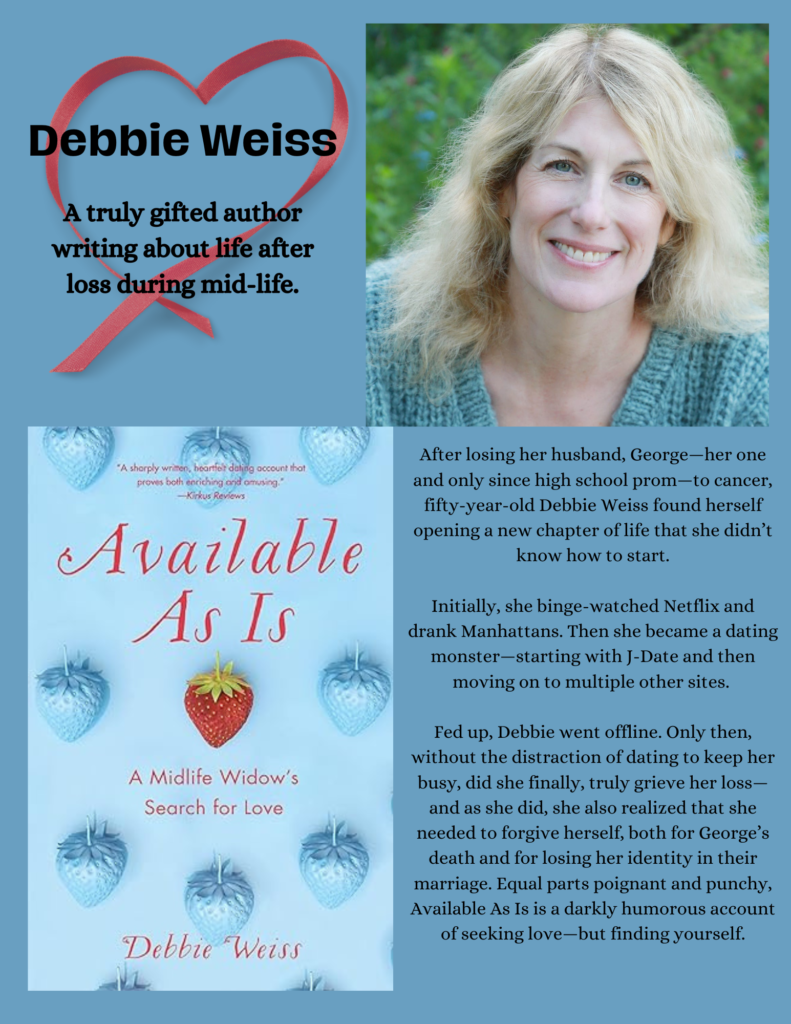
When my husband died in April of 2013, I didn’t think I deserved to have a future. And that led me to fall into emotional abuse.
By the time he was diagnosed with male breast cancer, it was already at Stage Four. At least, that’s what I believe. He never told me about having any symptoms until he announced one day that he was going to the hospital for “tests.” But by then, it was too late.
As he got sicker, he fell into deep denial.
He rejected care, wouldn’t let me get involved in his treatment, and demanded that we conceal his condition from his parents. Over time, I dressed the weeping wounds the cancer had carved into his back and hoped I wasn’t killing him. I gave him his nebulizer several times a night and begged him to let me get the hospital bed and skilled nursing care he needed.
But he always refused. Finally, sleep-deprived, and covered in stress-related hives, I yelled at him, trying desperately to get him to see reality, screaming that I just couldn’t take it anymore.
Except he was the one who was dying.
When he was gone, it was as though I’d lost him twice, first to the denial that took away my husband and best friend of 32 years, and second to the cancer that claimed his body. And somehow I felt it was my fault. It would always be my fault. To this day, I don’t much care for Sundays.
After he died, I had a major case of caregiver guilt. And a bunch of memories I didn’t want to be alone with, especially after dark.
A year and a half later, after dating online for a few months, I wound up in an emotionally abusive relationshipI wound up in an emotionally abusive relationship. But back then, I didn’t see the correlation.
Looking back, I see I accepted that poison because I was lost in shame.
Initially — in fact way too early — my new boyfriend told me that he loved me. But six months later, he was whining that I sucked, was supremely selfish and never considered what he wanted. Outwardly, I railed against it. But deep down, I felt he was right. So I hung out with a guy who drove with a coffee cup of whiskey beside him, and balked when it was his turn to pay for dinner but gambled away thousands of his savings, and who threatened to kill himself because he was just that miserable.
Like so many who have been in abusive relationships, I rationalized that I could help him to change. He needed me. Having failed to save my husband, I wanted to save someone, even someone who wasn’t very nice to me.
How many of us have subconsciously fallen into toxicity because we didn’t believe we deserve better?
We wind up with someone enmeshed in their own drama who isn’t good for us, and we think, I guess that’s all I get to have in this life.
It’s not that you consciously decide that you deserve a schmuck, it’s that you settle for one. They’re a distraction from yourself. You don’t have to work on your own pain when you’re constantly mopping up after someone else’s.
And that can be a relief.
Unable to live alone with my memories, I lacked the wherewithal to get out. Nothing was that great, but being with him was somewhat better than being alone.Until it wasn’t.
To resolve my guilt, the first thing I had to do was to confess my sins.
I see now they weren’t unique or even special. Many of us feel guilt over providing flawed care to our loved ones and being overwhelmed and frightened, and even losing our tempers and saying things we regret. Which we regret even more after they’re gone.
One day while leaving a writing class, a fellow classmate asked about my weekend plans. I answered that I was going to try a walking group on meetup, but surprised myself by adding, “Whenever I meet anyone new I feel like I’m hiding something.” Isn’t it often that way, the thing we’re hiding is also the thing we want to shout out loud?
“The best way to get over shame is to talk about it, ” he said. “It’s when we hide our secrets that they fester.” I’d happened, perhaps not so unconsciously, to share my feelings with an older man who’d spent much of his life working on his own foibles.
So I started writing about it. From the responses I received, I learned I was not alone in my guilt. But I still didn’t get rid of my poisonous boyfriend.
My memories made it hard to be by myself for long periods of time. And that inability to be alone was its own kind of beast, feral and immediate, craving warmth, the feel of skin, the solidity of someone lying next to me in the dark, numbing out my shame.
I finally broke up with my boyfriend when he insisted on picking me up after a writing workshop in the city. From the start, he was restless, strung out on pain medication and whiskey. He insisted on crossing a busy intersection just as the light was changing, grabbing my wrist to drag me along with him when I refused. A speeding car almost hit us. By the time that car had screeched to a halt, other cars were coming at us too.
When we finally made it across the street, he blamed me for not trusting him. The ride home wasn’t any better. That day I finally recognized him as an abuser who wanted to take me down with him.
By the time I was done with it all, I was bitter. A different person. No longer the quiet widow who was looking for love. But an angry woman who’d been abused. Yet that was better because now I cared about having a future.
If you’ve ever felt this kind of shame, you are not alone. But I also want you to know in the future you’ll be different. It might not be for months or even years, but there is a different you who wants to be alive. And the you that emerges from the crucible may very well not be the person who you were before. But that person is worth waiting for.


